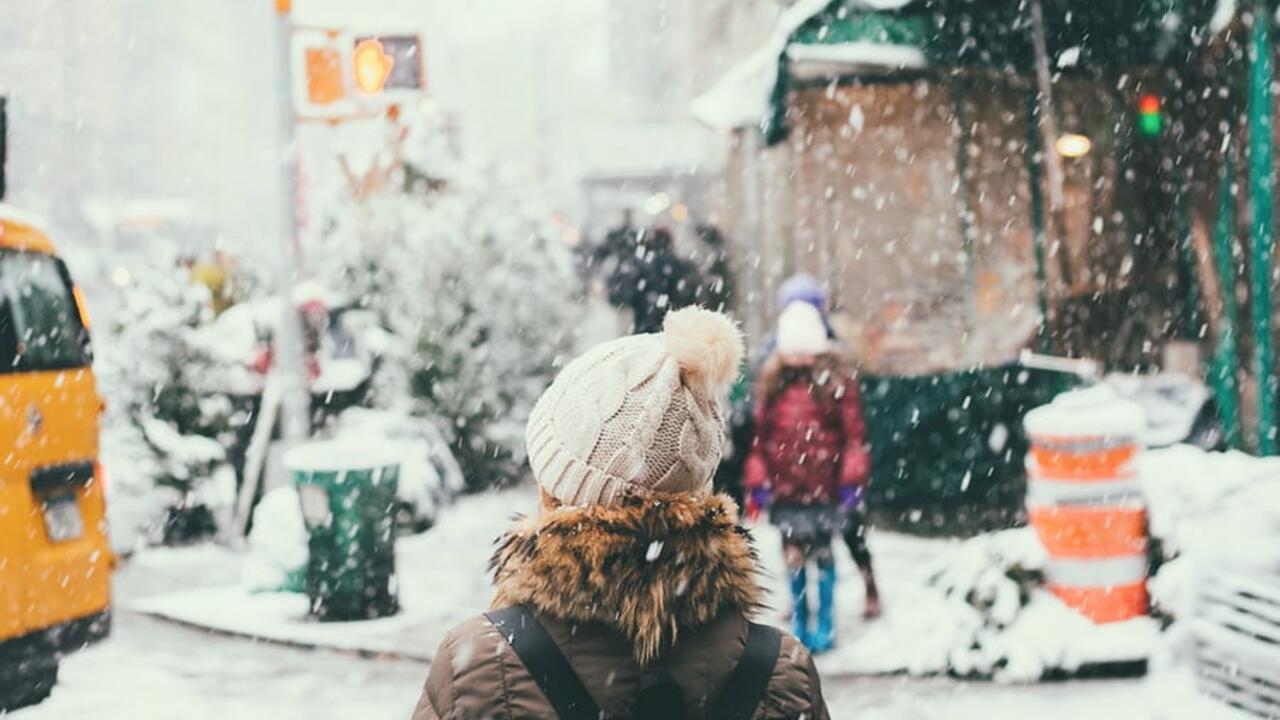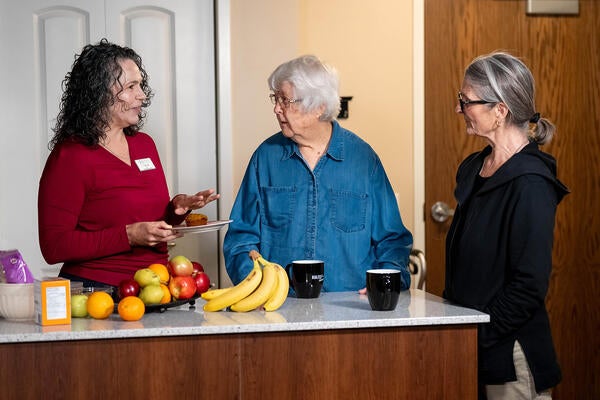For months, we’ve relied on the outdoors to enable us to gather with others in relative safety. Slow streets, expanded bike lanes, and extended patios, as well as access to quality open spaces, trails, and parks made the COVID-19 experience more tolerable.
As we brace for another possible spike in COVID-19 infections this winter, Professor Troy Glover of Waterloo’s Recreation and Leisure program says we need a reason to bundle up and go outside.
Glover says more towns and cities should follow the lead of places like Montreal, Edmonton and Winnipeg – which have dubbed themselves “winter cities” and have embraced a global movement to bring tourism to winter destinations.
Why do we need a winter strategy?
While it may seem safer to stay apart and inside within our bubbles during the pandemic, the fact is, the risk of contagion worsens indoors. Outside, air dilutes the virus, thereby mitigating the risk, as long as people physically distance, within public health guidelines.
We should be worried about an escalation of COVID-19 cases, but we should also be concerned about the negative impact of social isolation on our community. Social isolation can severely harm our well-being, especially for those already dealing with depression. “Winter blues” will likely take on a whole new meaning this year. Accordingly, the health benefits of social connectedness ought to outweigh the low risk of transmission in outdoor settings.
What is a winter strategy?
First, let’s invest in outdoor sociability. Installing gas heaters, creating warming stations, erecting overhead shelters, and replacing outdoor metal seating with wooden benches or straw bales make outdoor spaces more inviting in the winter. We’re seeing some of these strategies with the extension of patio programs, but they need to be expanded further. Municipalities should work with fire departments to enable the safe use of public fire pits. Ultimately, we need a four-season patio culture, and this year ought to be the start of one.
Second, let’s encourage physical activity during the winter season, albeit more creatively. What if we flooded a portion of local trails for skating? What about hosting a weekly candlelit night walk? We’ve already seen a temporary commitment to expanding protected bike networks, so why not continue it into the winter? Also, what about making sure sidewalks are cleared to ensure everyone, no matter their ability, can get outside and enjoy the outdoors? If we want people to remain active during winter, we need to provide a supportive infrastructure.
Third, let’s eventify our public spaces. Street markets can boost community spirit during the coldest season, so more of them would be welcome. What about organizing Open Streets in the winter?
Fourth, let’s support more outdoor attractions. In addition to extending patios, why not encourage more pop-up food vendors, like food trucks, outdoor barbecues, and hot chocolate bars to create foodscapes in our communities? What about building makeshift stages for musicians, church or school choirs, or theatre groups? These spectacles could occupy the same space as outdoor rinks and tobogganing hills. We could learn from ski towns that make après ski activities rival the enjoyment of the slopes themselves.
Who will make this happen? How will it work?
These sorts of initiatives can transform our streets, parks, and open spaces into great places to be during our coldest, darkest season, while also creating exciting spaces for our local businesses to thrive. Many of these strategies are already in use, but a more deliberate plan to coordinate and leverage them for greater benefit would help us change mindsets about winter.
Local, provincial and even the federal government can encourage these strategies, and they should. We’re all going to need a bit more help to get through this tough winter ahead.
The University of Waterloo has a number of experts available for comment on various aspects of the COVID-19 pandemic, click here to see the up-to-date list.








